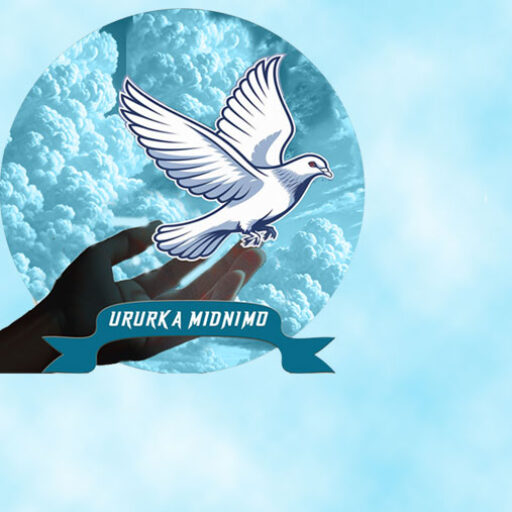
Protecting the Brave Soldiers of Puntland
Monday 21 April, 2025
Post-war and Landmine Induced hearing loss assessment, diagnosis, treatments, and rehabilitation for Puntland’s Soldiers.
War leaves scars- both visible and invisible for Puntland’s soldiers who have endured the chaos of conflict and the lethal legacy of Landmines, injuries are Hearing Loss.
The thunderous explosions of Landmines and Artillery not only claim limbs and lives but also inflict irreversible damage to Auditory Systems.
As Puntland transitions from war to peace, prioritizing assessment, diagnosis, treatment, and rehabilitation for veterans with hearing loss is not just a medical obligation – it is a moral imperative.
The silent wound:
Why hearing loss demands immediate Action?
Hearing loss is a common but underreported consequence of wartime service Blast waves from explosions can rupture eardrum, damage inner ear structures, or disrupt neural Pathways.
Leading to conditions like tinnitus (ringing in the ears), sensorineural Hearing Loss, or Hyperacusis (sound sensitivity). Left unaddressed, these injuries cascade into Profound challenges:
Social isolation
Difficulty communicating strains relationships and erodes mental health. Economic hardship:
- Impaired hearing limits
- Employment
Psychological trauma
Veterans may face depressions, Anxiety or PTSO compounded by sensory deprivation.
For Puntland’s Soldiers, many of whom lack access to Post-war Healthcare, the stakes are even higher. Systemic interventions are critical to restoring dignity, functionality, and hope.
Assessment
The first step toward healing:
Accurate assessment is the cornerstone of effective care.
In Post-war settings like Puntland mobile clinics and community health campaigns can identify affected Soldiers through:
1. Audiometric testing:
Measuring hearing thresholds across frequencies.
2. Tympanometry:
Assessing eardrum and middle ear function.
3. Surveys:
Documenting symptoms like dizziness, pains or tinnitus.
Early screening ensures timely referrals and prevents conditions from worsening.
Training local HealthCare workers to conduct basic assessments can bridge gaps in Puntland’s strained medical infrastructure.
Diagnosis
- Pinpointing the damage:
- Not all hearing loss is the
- Diagnosis differentiates between conductive loss (mechanical damage to the ear) and sensorineural loss (nerve or cochlear damage), guiding tailored treatments.
- Advanced tools like Otoacoustic Emissions (OAE) tests or MRI scans may be needed for complex cases.
- In resources – limited Regions, Partnerships with International Audiology Organizations could provide diagnostic Equipment and expertise.
Treatment
Restoring sounds, rebuilding levels
Treatment plans must be pragmatic and culturally accessible:
1. Medical interventions:
- Antibiotics for infections
- Surgery for perforated eardrums or steroids to reduce inner ear
2. Hearing Aids:
- Affordable, durable devices
- Amplify sound for mild to moderate
3. Cochlear implants:
- For severe cases, through cost and surgical requirements pose
4. Tinnitus Management:
- Sound therapy or cognitive behavioural therapy (CBT) to alleviate
- Innovative solutions, such as Solar – powered hearing Aids or 3D-printed earmolds, could enhance accessibility in Puntland’s Remote areas.
Rehabilitation
Rehabilitation Empowers Veterans to adapt and thrive:
Improving speech recognition and listening skills.
· Counselling:
Addressing stigma, depression, or PTSD linked t hearing loss.
· Vocational Programs:
Teaching Sign Language, Lip-reading or Job for new Live hoods.
· Community Support:
Peer networks reduce isolation and foster resilience.
Puntland’s Cultural context must shape these programs for instance, integrating traditional healing practices with Modern therapies.
· A call to action for Puntland and the world:
Puntland’s Soldiers have sacrificed their safety to protect their nation, their Post-war care cannot be an afterthought.
To build a sustainable framework:
1. Invest in local capacity:
Train audiologists, Nurses and Counsellors.
2. Leverage Partnerships:
- Collaborate with NGOs, Universities and Global Health Bodies.
4. Advocate for Policy:
Ensure Veterans’ Health is prioritized in National Budgets.
5. Raise Awareness:
Combat stigma so Veterans seek help without shame.
Conclusion:
Honor through Action: The wounds of war do not fade when the Guns fall silent.
For Puntland’s Brave Soldiers, Hearing Loss is a lifelong Battle – but one that can be won with compassion, science, and Solidarity. By adopting robust Systems for Assessment, Diagnosis, Treatment, and Rehabilitations, Puntland can set a precedent for Post-war hearing, providing that true courage lies in protecting those who once protected us.
Let this be Puntalnd’s Pledge: No Veterans will be left unheard.
This article is a rallying cry for Policymakers, Healthcare providers, and Global allies to stand with Puntland’s Veterans. Their silence must not be ours.
By: Dr Omar Ali Hassan (Known: Dr Omar Shire)
- Specialist Ear, Nose and through &
- Specialist Audiology
Leave a Reply